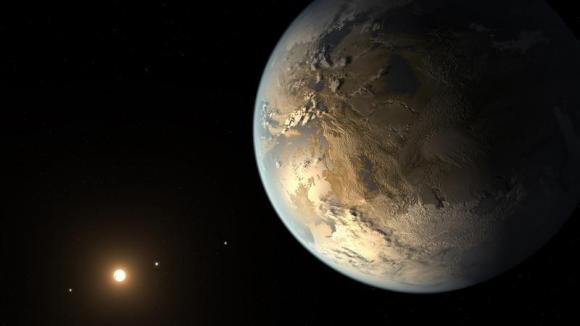You may mistake the planet in the picture for earth. More to confuse you is when you are told it is in the habitable zone of a star. However, that star is certainly not our sun.
While planets have previously been found in the habitable zone of other stars, the previous finds are all at least 40 percent larger in size than Earth and understanding their makeup is challenging. Kepler-186f is more reminiscent of Earth. Interesting?
Astronomers from NASA discovered this first Earth-size planet orbiting in the “habitable zone” of another star.The planet, named “Kepler-186f” orbits an M dwarf, or red dwarf, a class of stars that makes up 70 percent of the stars in the Milky Way galaxy.
Kepler-186f resides in the Kepler-186 system, about 500 light-years from Earth in the constellation Cygnus. The system is also home to four companion planets: Kepler-186b, Kepler-186c, Kepler-186d, and Kepler-186e, whiz around their sun every four, seven, 13, and 22 days, respectively, making them too hot for life as we know it. These four inner planets all measure less than 1.5 times the size of Earth.
Although the size of Kepler-186f is known, its mass and composition are not. Previous research, however, suggests that a planet the size of Kepler-186f is likely to be rocky.
“The discovery of Kepler-186f is a significant step toward finding worlds like our planet Earth,” said Paul Hertz, NASA's Astrophysics Division director at the agency's headquarters in Washington.
However, “being in the habitable zone does not mean we know this planet is habitable,” cautions Thomas Barclay, a research scientist at the Bay Area Environmental Research Institute at Ames, and co-author of the paper. “The temperature on the planet is strongly dependent on what kind of atmosphere the planet has. Kepler-186f can be thought of as an Earth-cousin rather than an Earth-twin. It has many properties that resemble Earth.”






No comments